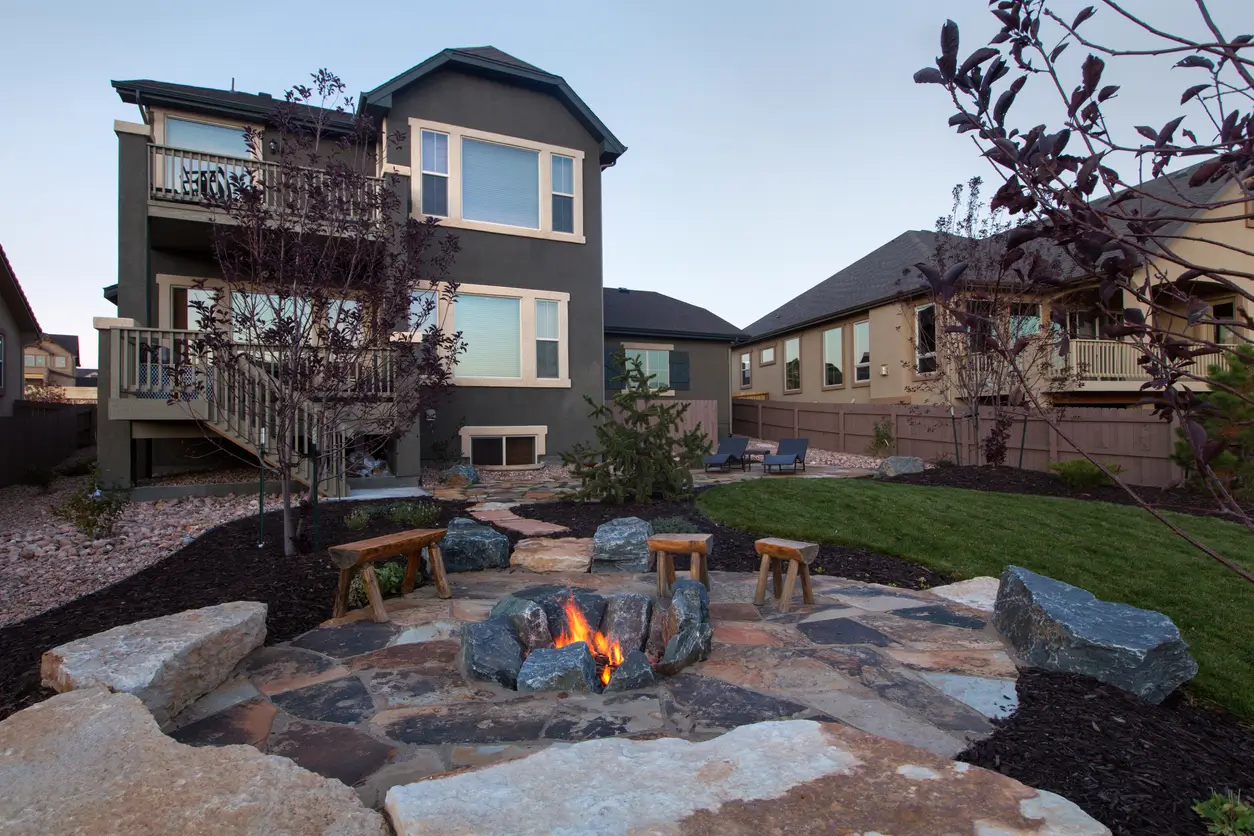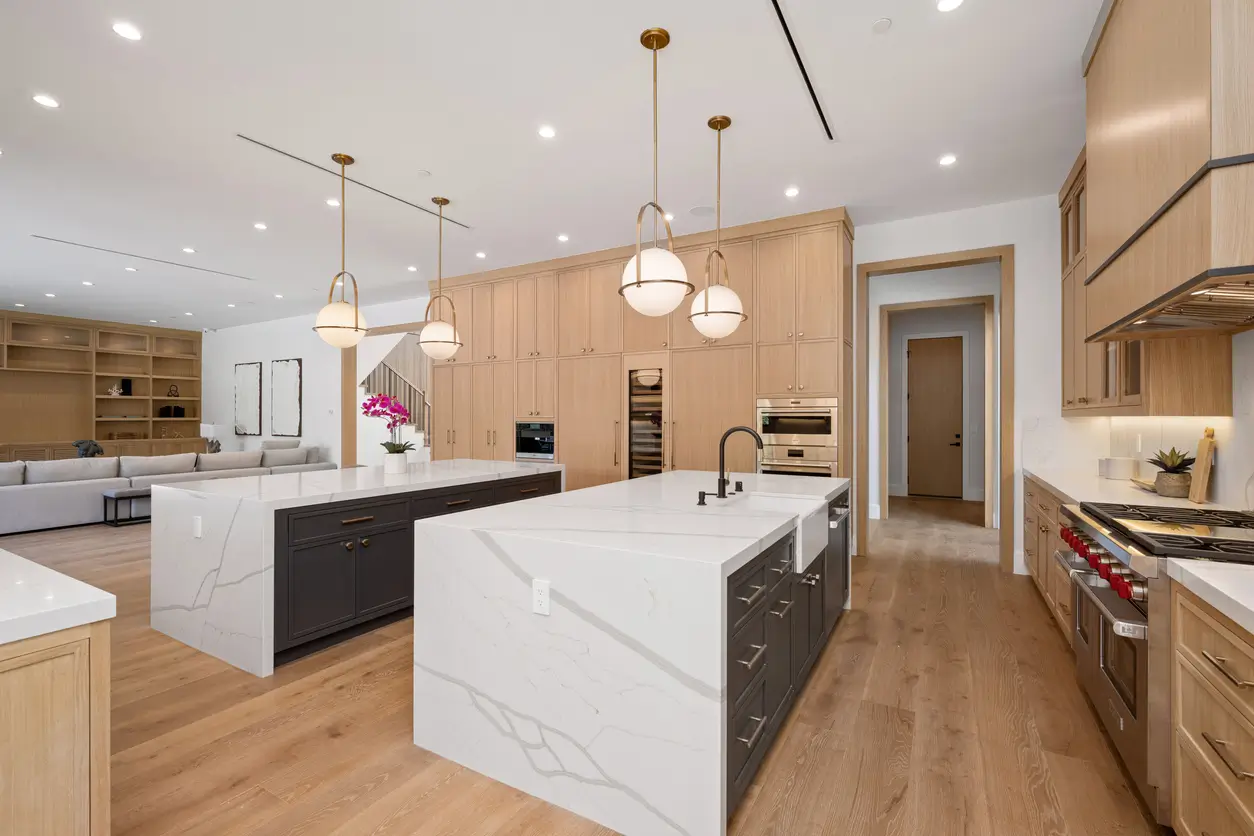Choosing the suitable countertop material for your kitchen or bathroom can significantly impact your space’s aesthetics and functionality. This guide breaks down the differences between granite, marble, quartz, and Dekton countertops, providing an overview of each material and their pros and cons.

Granite Countertops
Granite is a natural stone formed from volcanic activity. It consists of minerals like quartz, feldspar, and mica. From large stone deposits worldwide, granite is cut into slabs and polished for use as countertops. Its natural origin means each slab is unique, offering various colors and patterns.
Pros of Granite
- Durability: Granite is one of the most complex natural materials, making it highly resistant to scratches, heat, and wear. It can handle heavy use and is ideal for busy kitchens.
- Unique Appearance: Each granite slab is unique in color and pattern, providing a one-of-a-kind look. This natural variation can enhance the aesthetic appeal of your kitchen or bathroom.
- Heat Resistance: Granite can withstand high temperatures, so you can place hot pots and pans directly on the surface without damaging it.
Cons of Granite
- Porosity: Granite is porous and requires regular sealing to prevent staining and bacterial growth. Without proper sealing, it can absorb liquids and become stained .
- Cost: Granite can be pretty expensive depending on the rarity and origin of the stone. The cost includes both the material and the professional installation required.
- Heavy: Granite is very heavy and may require reinforced cabinetry for support, which can add to the overall cost and complexity of installation.
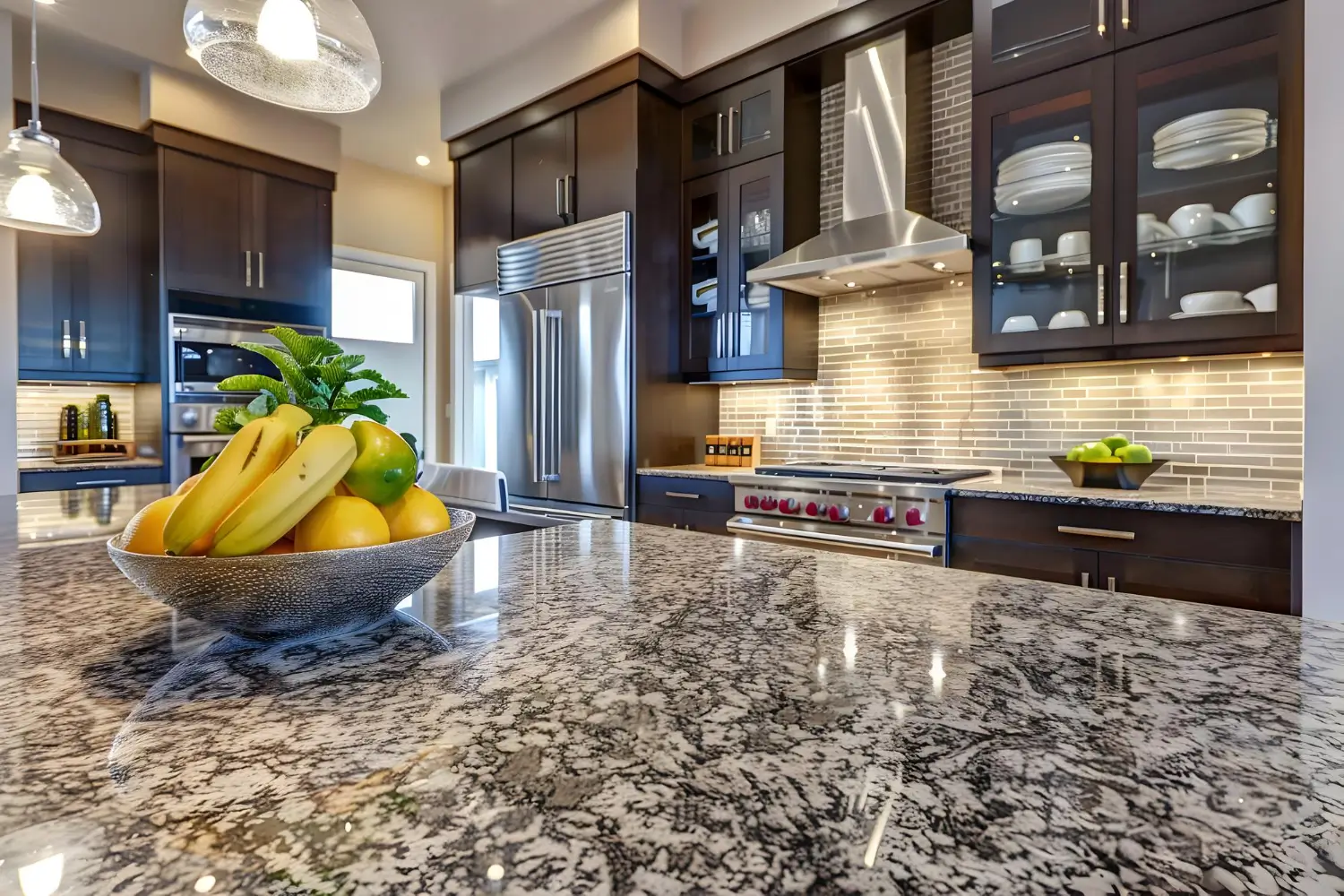
Marble Countertops
Marble is a natural stone formed from limestone and subjected to high pressure and heat, resulting in a crystalline structure. Known for its luxurious appearance and distinctive veining, marble has been used for centuries in art, architecture, and interior design.
Pros of Marble
- Aesthetic Appeal: Marble is renowned for its timeless beauty and elegance, with distinctive veining that adds luxury to any space. Its natural patterns can make each installation unique and visually striking.
- Heat Resistance: Like granite, marble is heat-resistant, making it suitable for baking and cooking. It can handle hot pots and pans without being damaged.
- Cool Surface: Marble remains cool to the touch, which is beneficial for pastry and dough preparation. This makes it a favorite among bakers and chefs.
Cons of Marble
- Porosity: Marble is highly porous and susceptible to staining from acidic substances like wine, juice, and vinegar. It requires regular sealing to maintain its appearance and prevent damage.
- Softness: Marble is softer than granite and quartz, making it more prone to scratches and etching from acidic substances. It can develop a patina over time, which some homeowners find charming, while others see it as wear.
- Maintenance: Marble requires diligent maintenance, including regular sealing and careful cleaning, to preserve its beauty and functionality.
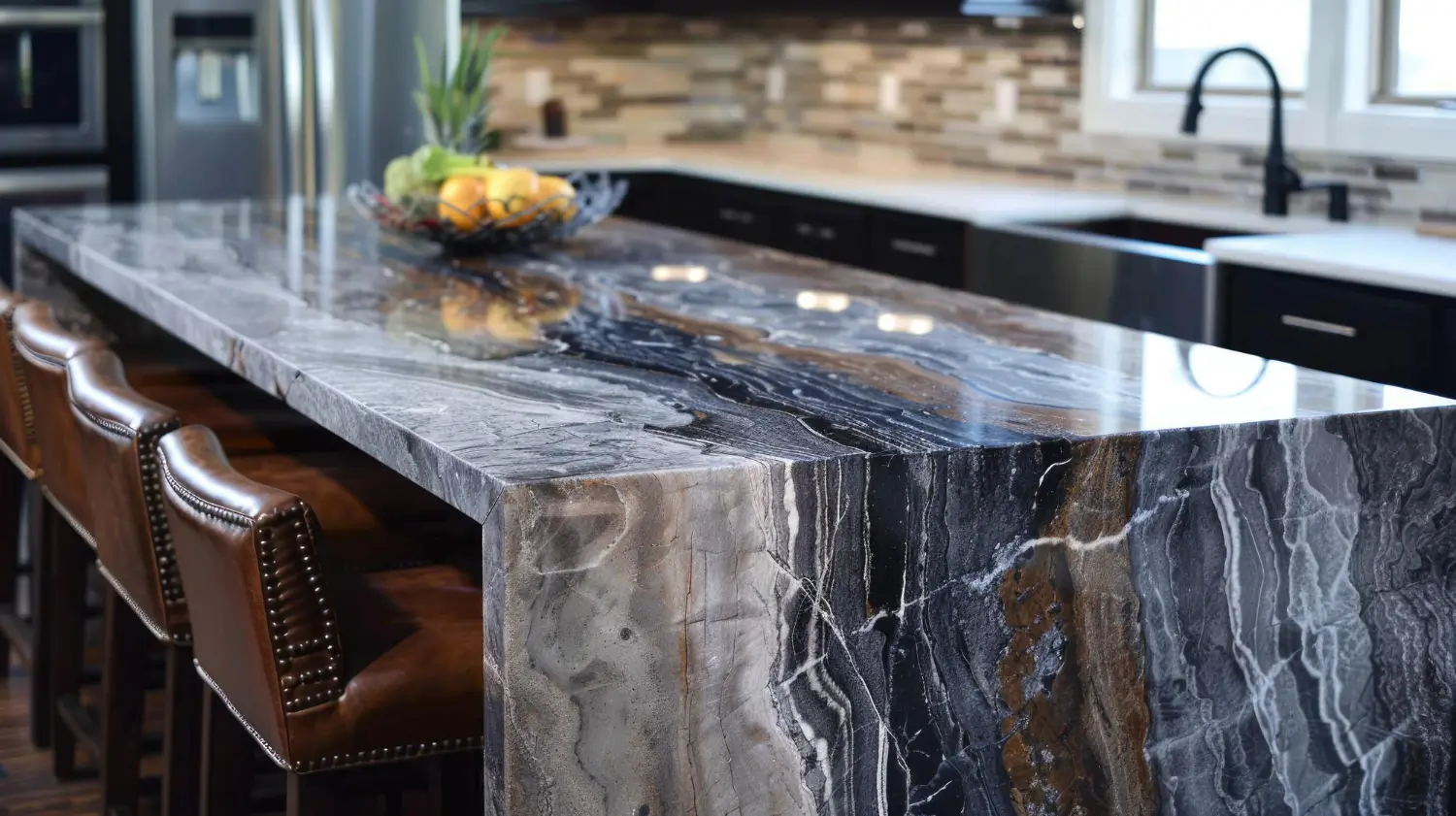
Quartz Countertops
Quartz countertops are engineered stone products made from natural quartz crystals and resin binders. This process creates a durable and non-porous surface that can mimic the appearance of natural stone while offering enhanced performance characteristics.
Pros of Quartz
- Durability: Quartz is extremely hard and resistant to scratches, stains, and impacts. It is an excellent choice for high-traffic areas and busy kitchens.
- Non-Porosity: Being non-porous, quartz does not require sealing and is resistant to bacteria and staining. This makes it a low-maintenance option that is easy to clean and maintain.
- Consistency: Quartz offers consistent color and pattern, which can be a plus for those looking for uniformity in their design. It is available in a wide range of colors and finishes.
Cons of Quartz
- Heat Sensitivity: Quartz can be damaged by excessive heat, so it’s recommended to use trivets and hot pads to protect the surface from hot pots and pans.
- Cost: Quartz can be as expensive as or even more than natural stone options, particularly if you opt for high-end designs and finishes.
- Artificial Appearance: Some people prefer the natural look of granite or marble over the more uniform appearance of quartz, though many modern quartz designs closely mimic natural stone.
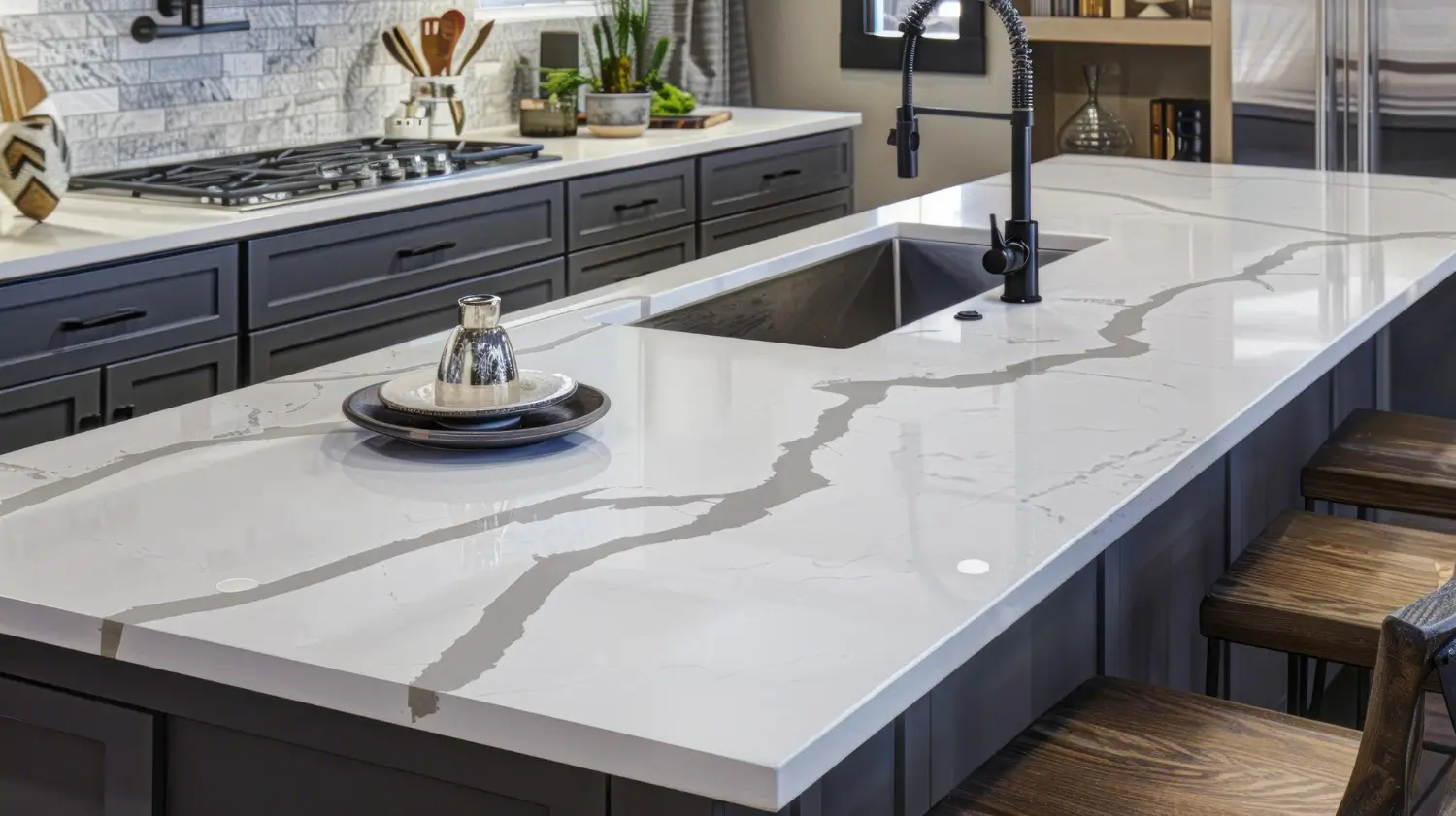
Dekton Countertops
Dekton is an ultra-compact surface made from a blend of raw materials used to produce glass, porcelain, and quartz surfaces. It is manufactured using a process called sinterized particle technology, which creates a highly durable and non-porous surface.
Pros of Dekton
- Durability: Dekton is incredibly durable and resistant to scratches, stains, and UV rays, making it suitable for indoor and outdoor use. It is highly resistant to wear and tear, even in high-traffic areas.
- Heat Resistance: It can withstand high temperatures without damage, allowing hot pots and pans to be placed directly on the surface. This makes it ideal for kitchen countertops.
- Low Maintenance: Dekton is non-porous and does not require sealing, making it very low maintenance. It is also resistant to chemicals and staining, which simplifies cleaning.
Cons of Dekton
- Cost: Dekton is one of the more expensive countertop materials, reflecting its advanced manufacturing process and superior performance characteristics.
- Installation: The material is very dense and heavy, requiring professional installation and potentially reinforced cabinetry. This can add to the overall cost of your project.
- Limited Edge Profiles: Dekton offers fewer edge profile options than natural stone due to its hardness, which may limit design flexibility.
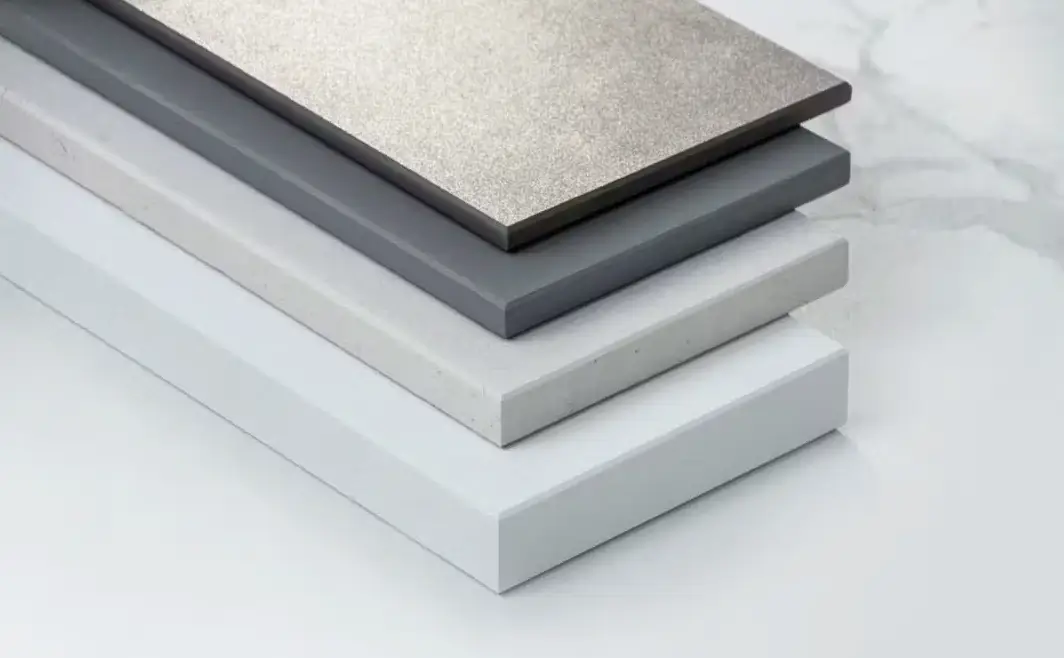
Conclusion
Choosing the suitable countertop material depends on your needs, preferences, and budget. Granite and marble offer natural beauty and unique patterns but require more maintenance. Quartz provides durability and low maintenance but lacks the natural variation of stone. Dekton combines extreme durability and low maintenance with a modern look, though it comes at a higher cost.

